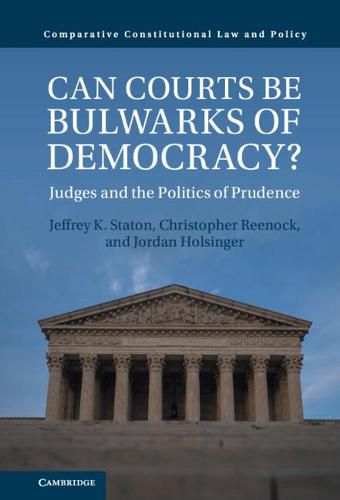Readings Newsletter
Become a Readings Member to make your shopping experience even easier.
Sign in or sign up for free!
You’re not far away from qualifying for FREE standard shipping within Australia
You’ve qualified for FREE standard shipping within Australia
The cart is loading…






Liberal concepts of democracy envision courts as key institutions for the promotion and protection of democratic regimes. Yet social science scholarship suggests that courts are fundamentally constrained in ways that undermine their ability to do so. Recognizing these constraints, this book argues that courts can influence regime instability by affecting inter-elite conflict. They do so in three ways: by helping leaders credibly reveal their rationales for policy choices that may appear to violate legal rules; by encouraging leaders to less frequently make decisions that raise concerns about rule violations; and by encouraging the opposition to accept potential rule violations. Courts promote the prudent use of power in each of these approaches. This book evaluates the implications of this argument using a century of global data tracking judicial politics and democratic survival.
$9.00 standard shipping within Australia
FREE standard shipping within Australia for orders over $100.00
Express & International shipping calculated at checkout
Liberal concepts of democracy envision courts as key institutions for the promotion and protection of democratic regimes. Yet social science scholarship suggests that courts are fundamentally constrained in ways that undermine their ability to do so. Recognizing these constraints, this book argues that courts can influence regime instability by affecting inter-elite conflict. They do so in three ways: by helping leaders credibly reveal their rationales for policy choices that may appear to violate legal rules; by encouraging leaders to less frequently make decisions that raise concerns about rule violations; and by encouraging the opposition to accept potential rule violations. Courts promote the prudent use of power in each of these approaches. This book evaluates the implications of this argument using a century of global data tracking judicial politics and democratic survival.